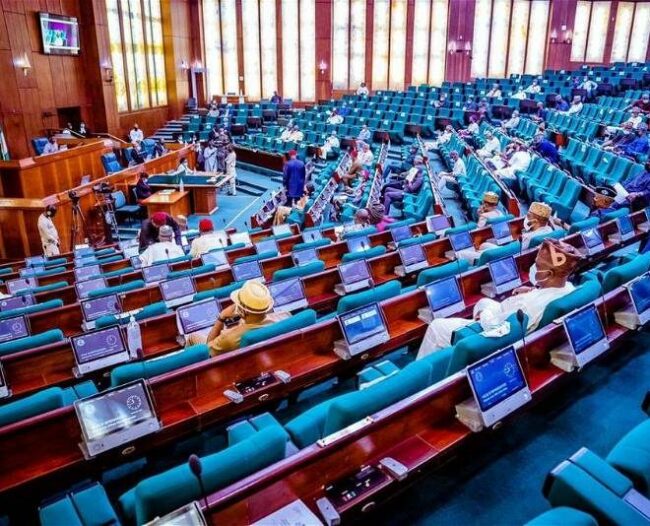The House of Representatives in Nigeria has called upon the Federal Government to suspend the implementation of the Samoa Agreement until all controversial clauses are clearly defined, ensuring they do not violate any Nigerian laws.
This resolution follows the adoption of a motion of urgent public importance sponsored by Deputy Minority Leader, Hon. Aliyu Sani Madaki, who urged the House to intervene.
The resolution addresses public concerns over an alleged clause regarding Lesbian, Gay, Bisexual, and Transgender (LGBT) issues in the Agreement, which the federal government has denied.
During his presentation, Hon. Madaki recalled that on June 28, 2024, the Federal Government signed the Samoa Agreement with the European Union to enhance food security and inclusive economic development, among other critical areas.
“The House is concerned that the agreement allegedly contains clauses that compel underdeveloped and developing nations to support the LGBT community as a condition for receiving financial and other support from advanced societies.
“The House also expresses concern about Article 97 of the Agreement, which states that ‘no treaty, convention, agreement, or arrangement between one or more European Union member states and one or more OACPS members shall impede the implementation of this Agreement,’ asserting supremacy over Nigerian sovereignty.
“The House is apprehensive that other articles, such as Article 2.5, 29.5, 36.2, and 88 in the Samoa Agreement signed by the Federal Government, may be detrimental to Nigeria’s interests and the values of our people, particularly in the absence of a Reservation clause.
ALSO READ: Adamawa LG poll: We’re ready for election, ASIEC Chair declares
“The House notes that Article 2.5 mandates parties to systematically promote a gender perspective and mainstream gender equality across all countries.
“The House is also concerned that the term ‘gender equality’ reportedly encompasses various forms of immorality, including homosexuality, lesbianism, transgenderism, and bestiality, diverging from its traditional understanding of two sexes, male and female.
“Furthermore, the House is concerned that signing such an agreement with the aforementioned clauses, if true, would violate our sovereignty and constitute a clear contravention of Section 5(b) of the 1999 Constitution as amended. The Federal Government may have signed the agreement without extensive consultations and consideration of potential long-term consequences.”
Meanwhile, there was a mild uproar on the floor as some lawmakers protested against the Majority Leader, Hon. Julius Ihonbvere, who argued that there was no clause related to LGBT issues in the agreement.
These lawmakers chanted ‘No, No, No.’
In his remarks, Minority Leader Hon. Kingsley Chinda pacified members, urging them not to rush to judgment on the agreement, as the motion aimed to investigate potential hidden clauses.
He emphasized that members and Nigerians opposing the agreement seek assurance that the government’s statements about the agreement are accurate and do not offend Nigerian culture, religion, and way of life.
Consequently, the House mandated the joint Committees on National Planning and Economic Development, Justice, Treaties, Protocol, and Agreements to engage with relevant agencies to clarify the contentious aspects of the agreement and report back within four weeks for further legislative action.
The House also directed its Committee on Legislative Compliance to organize dialogue and consultations with stakeholders, including Civil Society Organizations, Cultural and Religious Leaders, and Legal Experts, to ensure their perspectives are considered in evaluating the Samoa Agreement.







